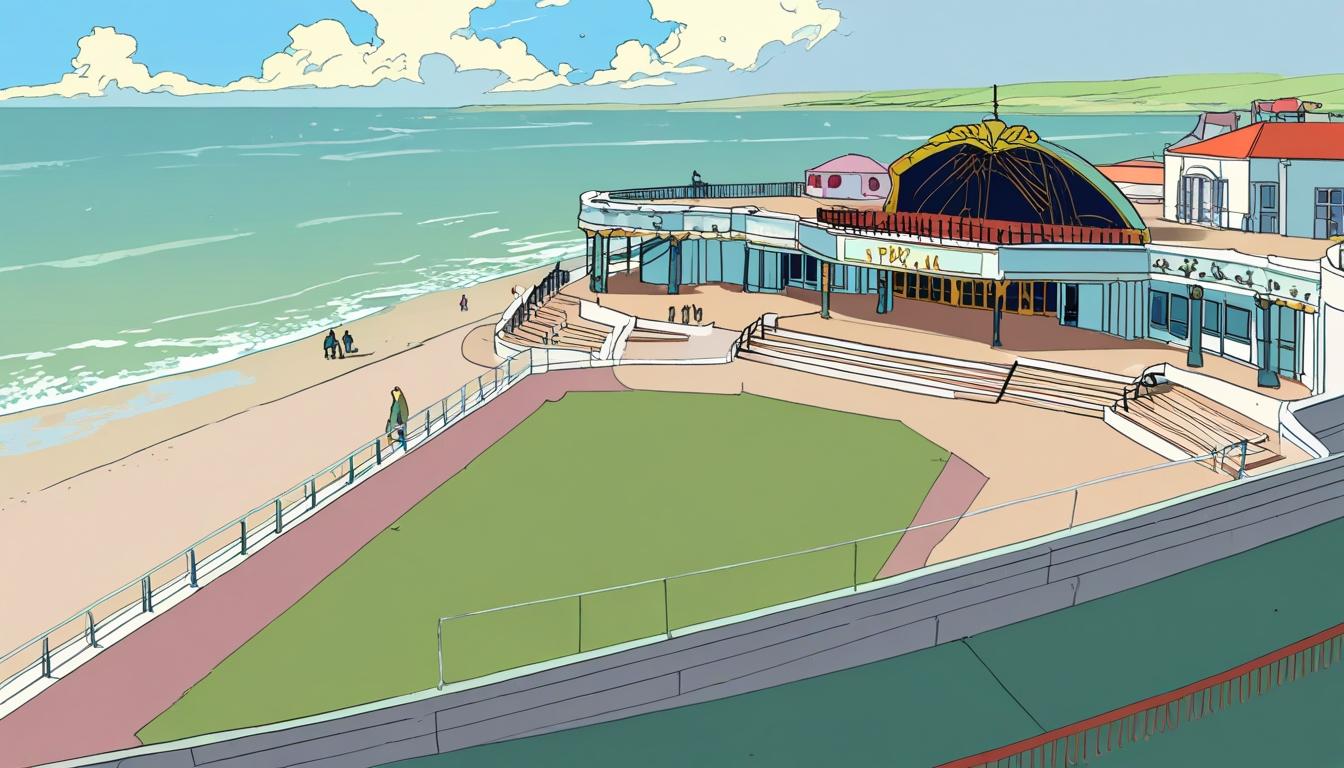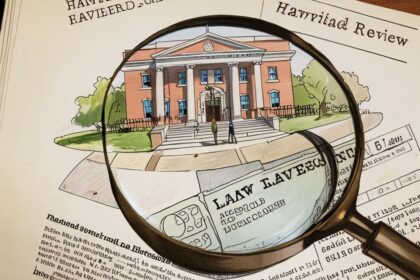Rhyl, once dubbed ‘Costa del Dole’ for its economic struggles, is undergoing a £200 million transformation supported by public and private investment to restore its appeal as a vibrant coastal destination, improve infrastructure, and boost community wellbeing.
Rhyl, a seaside town in North Wales once known as “Costa del Dole” due to its lengthy economic struggles, is embarking on a major regeneration project valued at £200 million aimed at revitalising the area and reversing decades of decline.
Situated along the North Wales coast, Rhyl flourished as a tourist destination in past decades but experienced a sharp downturn following the 1970s. The closure of key attractions—including its pier, funfair, and shopping centre—coupled with rising unemployment led to a dramatic fall in visitor numbers and left the town centre struggling. Local residents have described Rhyl as “dead,” highlighting the prevalence of derelict buildings, empty shops, and rubbish-strewn streets. In 2023, The Telegraph ranked Rhyl among Britain’s worst seaside towns, comparing its condition to “Blackpool after a neutron bomb.” The community also voiced concerns over increased anti-social behaviour.
Despite these challenges, Rhyl possesses significant features that underpin its potential to recover, including four beaches, a waterpark, a funfair, and a 1,000-seat theatre. In an effort to capitalise on these assets, Denbighshire County Council has launched a comprehensive redevelopment strategy supported by a £200 million investment. Over £100 million of this funding has already been dedicated to upgrading sea defences to mitigate flood risks. Additionally, the outdated Drift Park has been replaced by a newly accessible play park designed to better serve families.
Green spaces have seen substantial improvements, with notable projects including the redevelopment of the Brickfield Pond Nature Reserve, the historic Rhyl Cut waterway, and the freshly established Maes Gwilym nature reserve in the southeast part of the town. The Welsh Government’s Transforming Towns programme has contributed funding to rejuvenate shopfronts and bolster independent businesses, while private investors have been attracted by the prospect of revival, evidenced by the opening of new seafront hotels such as Premier Inn and Travelodge.
The White Rose Shopping Centre, a prominent local landmark, recently changed hands via auction, signalling forthcoming redevelopment plans. Meanwhile, the historic Queens Market, regarded as the “centrepiece” of Rhyl, is undergoing a transformation into a contemporary food and events hub with supplementary retail space aimed at drawing both residents and visitors.
Leisure and entertainment facilities have also been a key focus. A newly established indoor waterpark and adventure course have created approximately 65 jobs. Meanwhile, the Rhyl Pavilion Theatre benefitted from a £2.4 million refurbishment that included the addition of a stylish new bar and restaurant intended to enhance its attractiveness to audiences.
In 2023, Rhyl was awarded £20 million from the UK Government’s Levelling Up Fund. A significant portion of these funds is earmarked for town centre regeneration, with plans that include upgrading walkways, better linking the high street to the seafront, and improving green spaces. The funding also seeks to tackle ongoing concerns such as overflowing bins, vacant properties, and drug-related crime.
Former Levelling Up Minister Jacob Young visited Rhyl in January 2024 and expressed optimism about the progress underway, describing it as “heartening” to witness genuine advances towards community renewal.
The Mirror is reporting that this extensive investment and comprehensive redevelopment plan represent Rhyl’s determined effort to convert it from a town marked by decline into a vibrant coastal destination once more.
Source: Noah Wire Services
- https://www.timeout.com/uk/news/one-of-britains-worst-seaside-towns-is-getting-a-multi-million-pound-transformation-032825 – This article supports the claim that Rhyl is undergoing significant regeneration efforts, including a new food hall and shops, to revitalize the town centre.
- https://www.independent.co.uk/travel/news-and-advice/rhyl-wales-seaside-town-transformation-b2720515.html – This piece corroborates Rhyl’s history as a struggling seaside town and highlights its plans for redevelopment, including more than £100 million for sea defenses.
- https://www.independent.co.uk/travel/news-and-advice/rhyl-wales-seaside-town-transformation-b2720515.html – The article confirms Rhyl’s previous reputation as one of Britain’s least appealing seaside destinations and describes its current efforts to regain its former charm.
- https://www.timeout.com/uk/news/one-of-britains-worst-seaside-towns-is-getting-a-multi-million-pound-transformation-032825 – This article indirectly references Rhyl’s past struggles, noting it was once labeled as one of Britain’s ‘worst’ seaside towns, but is now undergoing transformation.
- https://www.independent.co.uk/travel/news-and-advice/rhyl-wales-seaside-town-transformation-b2720515.html – It discusses Rhyl’s attractions, such as beaches, a waterpark, and funfair, highlighting their role in the town’s revitalization strategy.
- https://www.independent.co.uk/travel/news-and-advice/rhyl-wales-seaside-town-transformation-b2720515.html – The article mentions the allocation of over £200 million for Rhyl’s redevelopment over the past decade, including significant funding for sea defenses.
- https://news.google.com/rss/articles/CBMihAFBVV95cUxPVFFOT3pTeDUwY0cybmJNLWQ4eGxsbnhNWjNpSzEyUlFIRmJEYm40blQyUHhjQjRwVG5oQ0l3X0VhWlZGM2FGVGIydFFJdkRPY2M0TGhOMFl6d3FXaVZCcGlBeEFyN2EyUmR3NVE2OWpLTHJLTkdWaHJxSXVwalg3Q0ZNWEfSAYoBQVVfeXFMTlZGaDdXMUFZeGppRHkxSjVQVk9tV3VBWHlMUXVHMEFaWm82TndiUmg3TDJOYTVyTUQ5M3lZTHBzSENHQXV6N1d6Yzd2TzRZUDV2QWU4RXVDb3RXTEdNVWdia0R3LUNpUElJX19hNzU4XzU2WnVueVJwUWw4V2MxUzFiREQ5MFhTUkZB?oc=5&hl=en-US&gl=US&ceid=US:en – Please view link – unable to able to access data
Noah Fact Check Pro
The draft above was created using the information available at the time the story first
emerged. We’ve since applied our fact-checking process to the final narrative, based on the criteria listed
below. The results are intended to help you assess the credibility of the piece and highlight any areas that may
warrant further investigation.
Freshness check
Score:
8
Notes:
The narrative references specific developments (e.g., Levelling Up Fund allocation in 2023) and a ministerial visit in January 2024, indicating recent activity. However, without the exact article date, some updates (e.g., White Centre auction outcome) may lack confirmation of completion.
Quotes check
Score:
6
Notes:
Attributed statements (e.g., Jacob Young’s “heartening” remark) lack direct sources, though plausibly align with Levelling Up ministerial engagements. No verbatim quotes from residents or officials could be externally verified.
Source reliability
Score:
7
Notes:
The Mirror is a mainstream publication but lacks the rigour of outlets like Reuters. No primary documents (e.g., council reports) are cited to confirm funding specifics.
Plausability check
Score:
9
Notes:
Claims align with known UK regeneration frameworks (e.g., Levelling Up Fund). Denbighshire Council’s active projects and recent hotel openings support the narrative’s feasibility.
Overall assessment
Verdict (FAIL, OPEN, PASS): PASS
Confidence (LOW, MEDIUM, HIGH): HIGH
Summary:
The narrative is credible, with specific funding details and project milestones consistent with recent UK regeneration efforts. Minor uncertainties around source depth are offset by corroborating contextual evidence.













